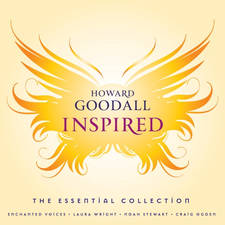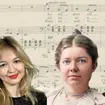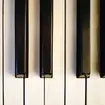‘Musicians are abandoning the industry for a stabler career’ – classical artists share truths about arts reopening
19 May 2021, 17:37 | Updated: 20 May 2021, 11:04
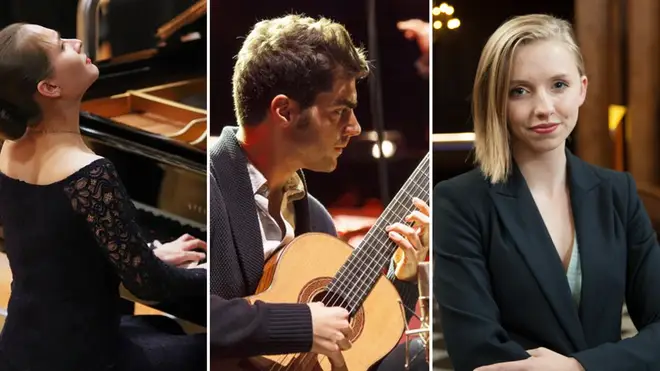
The arts and live music are gradually being restored. But the long-term impact on musicians has been disastrous and many are leaving the profession entirely, say the classical industry’s leading figures.
“A friend of mine recently started working on an opera production for the first time in 15 months and noticed that two of the cast with whom he was chatting during a coffee-break had cuts and bruises on their arms; it turned out that one had been working as a bricklayer and one as a gardener,” conductor Ian Page tells Classic FM.
Since the pandemic began, musicians have been surviving by taking on any work they can get. Now that live music is finally reawakening, is a swift return to business-as-usual on the cards for the country’s classical artists?
Not so much, say guitarist Miloš, organist Anna Lapwood, mezzo-soprano Jennifer Johnston, conductor Ian Page, clarinettist Julian Bliss, pianist Anna Tsybuleva, conductor and saxophonist Christian Forshaw, and classical music small business owner Katie Beardsworth.
We spoke to these leading classical figures about the truth behind live performance’s big ‘bounce-back’, and how the realities of Brexit are affecting the revival of UK arts.
Read more: ‘I went from singing arias to being a hospital porter’
Milos, guitarist – playing at Royal Albert Hall on 17 July
On the arts reopening: “Nothing can replace that magical feeling of hearing music happening in front of you, experiencing the electricity in the room and breathing together with your favourite artist. It might take some time before everyone feels comfortable enough to enter a concert hall or a theatre… but now more than ever we need those bums on the seats and all the support and love we can get.”
On Brexit: “The full extent of Brexit has not yet been fully felt, I’m afraid. This is a scary time for all... but when you add Brexit to the mix it becomes a very big concern for musicians. Simply put, there is absolutely no clarity nor plan. British-based artists are in a very difficult place right now. I don’t always understand the point of it all... it’s hard not to feel betrayed.”
Read more: ‘Era of being a UK-based concert artist is pretty much over’
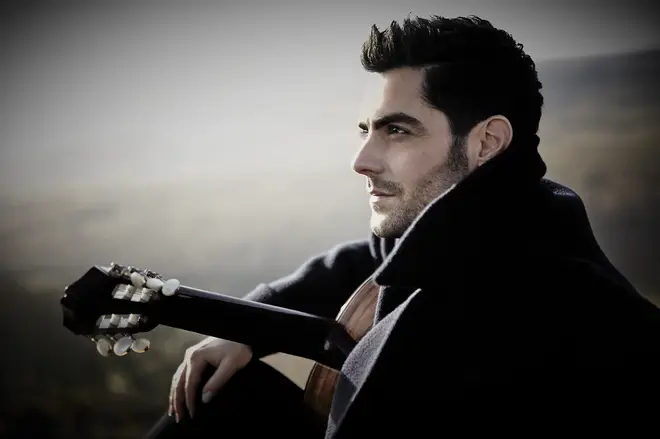
Ian Page, conductor – performing with The Mozartists at Cadogan Hall on 8 July
On the financial impact of COVID-19: “For individual artists, many are still having to survive by taking other work completely unrelated to their training and areas of expertise. A friend of mine recently started working on an opera production for the first time in 15 months and noticed that two of the cast with whom he was chatting during a coffee-break had cuts and bruises on their arms; it turned out that one had been working as a bricklayer and one as a gardener.”
On Brexit: “Brexit’s like an even bigger nail in the coffin during these unprecedentedly difficult times. Not only have we been set back by the pandemic, but now we face extra costs and bureaucracy to perform in Europe or to engage European artists. This will make international collaboration much harder and have a significant and detrimental financial impact on our industry. Even in the 18th century, Mozart’s education was predicated on the fact that he had freedom of movement to spend 15 months in London as well as time in France, Holland, Italy and several other countries.”

Classical Opera/The Mozartists - Mozart: Bastien und Bastienne at Wigmore Hall
Anna Lapwood, organist and conductor – performing at St-Martin-in-the-Fields on 21 June
On the arts reopening: “I think one of the biggest challenges as a performer is the uncertainty – gigs are returning, but in the back of your mind you’re trying to predict ‘is this really going to go ahead or not?’. I’ve had performances that have been postponed two or three times and it’s difficult from a psychological perspective. Musicians are such goal-oriented people, so when those goals are constantly shifting around it has a huge impact on the preparation process.”
On COVID-19 support for the arts: “Support isn’t just financial – the thing we’ve all been craving from DCMS is logistical support surrounding guidance, providing clarity and ensuring everyone has enough notice to implement changes. Just this week, new guidance was published the day after restrictions eased, stating that amateur choir rehearsals are limited to 6 singers. Not only was the tightening of restrictions a total shock, it was also announced so late in the day that many choir leaders found out whilst they were setting out the chairs for their rehearsals.
“There’s also the lack of parity between restrictions placed on musical events and those placed on things such as sports/pubs/restaurants. It is pretty hard to get your head around people being allowed to sing in a football stadium but a small group of singers not being allowed to sing in a well-ventilated church.”
Read more: ‘10,000 singing football fans, but only 6 in a choir?’

J.S. Bach - Toccata in F Major, BWV 540 | Anna Lapwood Organist | Classic FM Sessions
Julian Bliss, clarinettist – playing at London’s Wigmore Hall on 25 May
On the financial impact of COVID-19: “Other sources of income are always good, if they complement the core of what you do. But a number of musicians I know ended up getting jobs in completely different fields just to make ends meet, which is sad and very unsettling. I think we have all realised that relying solely on one stream of income can be risky.”
Anna Tsybuleva, pianist – performing at Shanghai Oriental Arts Center, China on 9 July
On the arts reopening: “I know of many incredibly talented musicians who have abandoned the profession entirely in favour of a more stable line of work, which is such a terrible and long-lasting consequence of these times. I have been fortunate in a sense, because this artificial pause on ‘normal life’ has enabled me to spend time with my young daughter, which has been a true blessing. But it is my hope, of course, that all musicians can be back making music for live audiences again as soon as possible – it is our food, our oxygen, and our true privilege to connect and communicate in this special way.”
Christian Forshaw, composer and saxophonist – new album ‘Historical Fiction’ released on 17 September
On the financial impact of COVID-19: “Sadly I and many of my colleagues fell through the cracks and didn’t receive any government support during the whole pandemic. I was fortunate to be able to continue my work as Professor of Saxophone at the Guildhall School, but lost all of my other income.
On Brexit: “Brexit has added an infuriating layer of difficulty when planning tours and performances abroad. That kind of work would have been a lifeline as we come out of lockdown, but sadly we are faced with yet another barrier in re-establishing our performing careers.”
Jennifer Johnston, operatic mezzo-soprano – currently in teaching jobs
On COVID-19’s impact on freelancers: “Freelancers who have no job security at the best of times, despite being part of a world-leading powerhouse cultural sector, are turning to other sorts of work to make ends meet, whether driving a delivery van, teaching, working on farms, or in nursing homes on minimum wage.”
On Brexit: “The cultural sector is now decimated, and there is a further hidden enemy, whose impact has been masked by the onset of the pandemic: Brexit. For our touring musicians, Brexit serves as a death-knell to the days of freedom to tour the EU endlessly. British musicians are hit from both sides: almost no work at home because of the pandemic, no work abroad because of Brexit. A ‘bounce-back’ may happen, but it may be too late for many smaller arts organisations whose margins are tiny and for freelancers who have sought more secure employment elsewhere.”

150 opera singers fight for the arts in Parliament protest
Katie Beardsworth runs Polyphony Arts, an independent classical artist management business
On COVID-19’s impact on artists: “We receive emails every day from promoters who really want to book our artists but are struggling to make commitments given all the uncertainty they are facing. I particularly feel that what is often not highlighted in all this is that most artists do not feel that their careers are at a stable and steady point. Progression is a huge aim for most musicians.
On diversity and creativity in the industry: “On the flip side of this, there is a positive side to this industry disruption. The artistic community’s response to the pandemic has been monumental. Artists have produced online work, worked on their profiles, and sought their own support like never before.
“The classical music industry needed to take a step back from the culture of unspoken hierarchy which exists and hampers the progress of artists that are minorities and/or from less advantaged backgrounds. There has been a big ‘levelling’ in all this, and I think artists that were previously struggling to find their path to success have a real opportunity here, to take their own space and find their own voice.”
